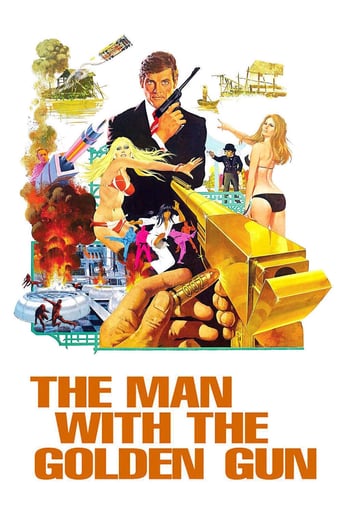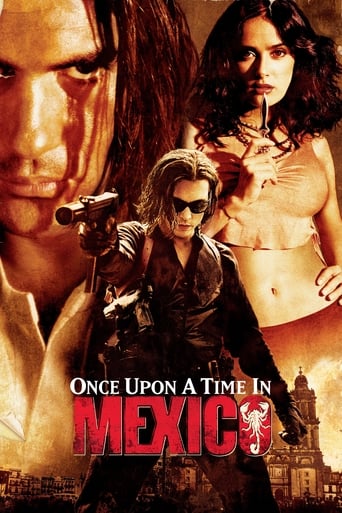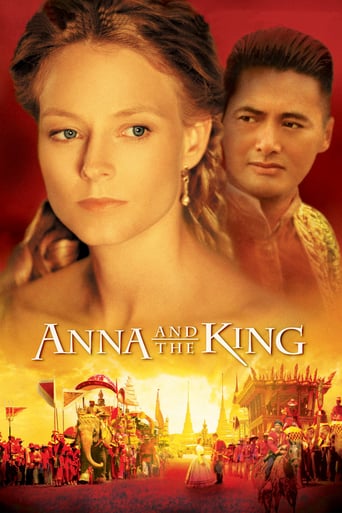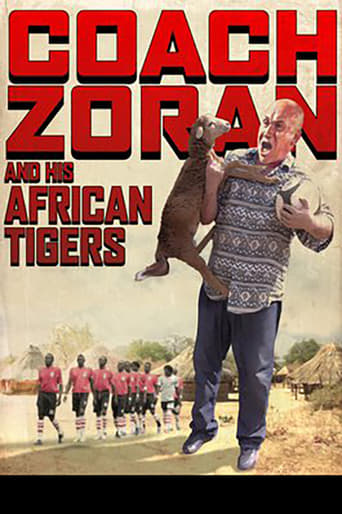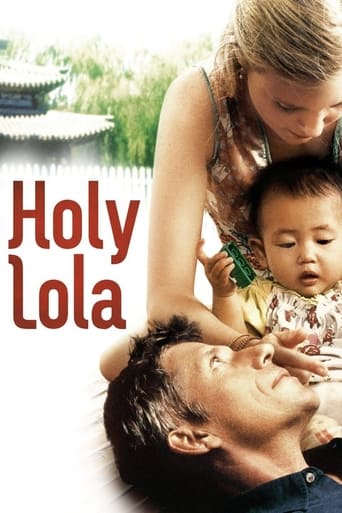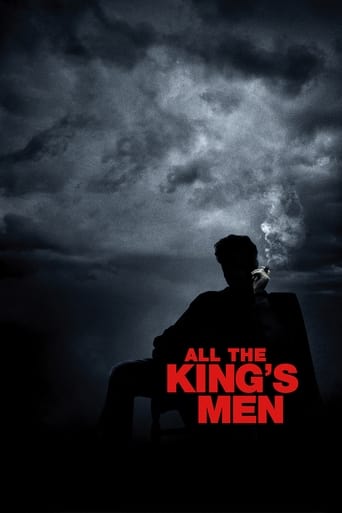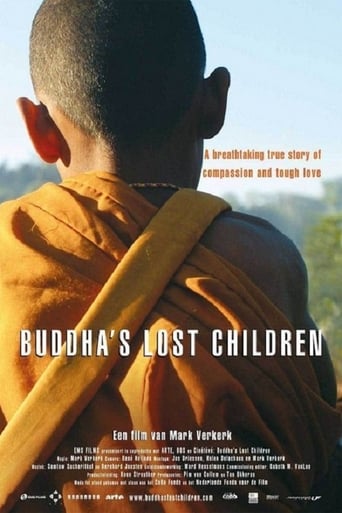

Buddha's Lost Children (2006)
Buddha's Lost Children is a feature-length documentary film about a Thai Buddhist monk who, armed only with his master boxing skills, wages an inspirational battle to help orphaned children, fight drug abuse, and preserve a vanishing way of life.
Watch Trailer
Cast
Similar titles
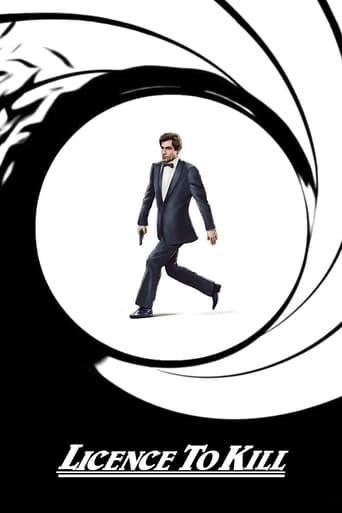
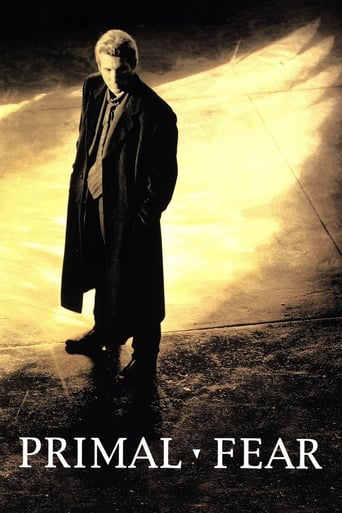
Reviews
Memorable, crazy movie
It’s fine. It's literally the definition of a fine movie. You’ve seen it before, you know every beat and outcome before the characters even do. Only question is how much escapism you’re looking for.
The film never slows down or bores, plunging from one harrowing sequence to the next.
All of these films share one commonality, that being a kind of emotional center that humanizes a cast of monsters.
Usually I do not expect documentary movies to affect me emotionally, but this film was a good surprise. The director made a great job showing us the insights of Buddhist culture by an example of life and work of a monk called Khru Bah. Boxer in the past, Khru Bah now dedicated his life in religion and helping orphan children by taking them in the monastery and teaching Buddhist religious traditions. I especially liked the way the director focused on children's past, revealing their stories. Most of Khru Bah's followers experienced difficulties in their lives - almost everyone either lost their parents or could no longer be raised and supported by them, but the monk's work gave these children a chance for a better future. Living in the Golden Horse monastery, these children are provided with basic self-care supplies and taught to follow Buddhist customs. Sure, it was not easy for them to adjust to a new place and get along with new people, but Khru Bah and nun's patience and wiliness to help soon gained children's trust. The director provides us with a good opportunity to know what a real life in the monastery looks like. Khru Bah is an example for his pupils to follow, and his actions, his way of solving different kinds of conflicts taking place affect children's view on life, showing them the importance of compassion and support. Thus, we could say that the monastery is like a new home for all these children, and Khru Bah is playing a role of the father, even giving them new names and being strict when the situation asks for it. The setting takes place in the Golden Triangle, which is a border territory in the Northern Thailand known for drug dealing. And again here is something I did not expect to see in the movie - it is a way Khru Bah emphasises the danger of drugs and importance of avoiding them. "How can your village be strong when your bodies are weak and addicted to drugs?", he asks from the citizens of one of the villages they visit. It can be seen that people respect him as they listen to his speech and advice. And when the monk with his pupils start their day visiting villages, the citizens make contributions in the form of food and other necessary stuff, as they believe that by doing this they would improve their karma. Also as Khru Bah and his pupils often move in dangerous regions it is important for children to be able to stand for themselves, so the monk teaches them how to do boxing using his own past experience. I think that this is an important scene to point out because it contradicts the general stereotype about Buddhism being a non-violent religion. Khru Bah shows that it is possible to follow Buddhist religious traditions and develop your physical strength at the same time. And the Buddha himself demonstrated after his experiencing of asceticism that a weak body is no good for the enlightenment. So Khru Bah emphasises the importance of both body purity and strength and clear mind. So the movie was both informative and interesting, and I personally enjoyed watching it. The work of Khru Bah and nun Khun Ead is very important, in my opinion, because they not only teach young children to follow Buddhist religious traditions but most importantly provide a good example of sympathy and compassion and give these children an opportunity for a good life.
Frankly speaking, at first I was somewhat skeptical about the Dutch film with the word "Buddha" in its title, however, after watching it, my opinion completely changed. It may not be the most precise representation of Buddhist monks' lifestyle, but it certainly gives us a good insight on it. The first thing that attracted my attention was the fact that events of this documentary take place on the border of Thailand, Burma and Laos- the area that is called the "Golden Triangle'. Since this region is infamous for its history of production and trade in opium, I was interested to see to what extent the film would be able to show the reality of situation faced by people living there. Though it was not the primary goal of the movie to cause sympathy, it certainly succeeded to provoke my emotions. Harsh living conditions of villagers were portrayed pretty accurately, but what affected me more were children and, of course, Khru Bah hilmself. As we are shown, some children initially did not want to go to the monastery, I myself even felt sorry for Pan Sean who had to leave his family. However, The Golden Horse monastery is more than a place where monks live and practice religion - it is primarily home for many people. As time passes, we can definitely see how the care children receive in the monastery begins to change them, they even begin to refer to Khru Bah as to their father. Considering the fact that relationships between monks in the monastery have to be neutral, it appeared somewhat controversial at the beginning. But now, after watching the documentary fully, I can say that this film's goal is not to simply represent certain aspect of religion- it is to represent humaneness and love. As Khru Bah said, this type of love is pretty tough, it's not weak. Through discipline he wants to make these children strong, that's why sometimes he has to be firm. That is probably one of the main reasons why his novices practice Thai boxing. This phenomenon also actually seemed quite confusing to me since I did not associate Buddhist monks with such type of sport. However, it indicates that documentary succeeded to once again break the stereotype that Buddhism is pacifist religion. I found the scene of rebuilding of the temple quite imposing, more particularly, I was impressed by Khun Ead. At first glance the fragile nun could efficiently suppress conflict that almost turned into a fight among young volunteers from the village. Even though Khru Bah first noticed the discord, it was Khun Ead who carried out "educational work" most part of the time. Overall, watching Suk, Pan Saen and other boys growing up, gaining experience and socializing was pleasurable and refreshing. At the beginning I had a feeling that this was going to be a very tough film that would show mostly difficulties that children and the monk has to overcome every day in order to survive. Indeed, this suggestion was not fully wrong, however, contrary to my expectations, at the end I found myself in a really good mood. Doubtlessly, people like Khru Bah should be depicted in media to show their good deeds and promote such kind of behavior among others. He and his novices reminded me that we should appreciate what we have and left me with the thought that happiness can be achieved even in such hard and sometimes dangerous conditions.
This documentary is about a Buddhist monk setting up a monastery to help orphans and children in need in northern Thailand.The film is a linear chronicle of events that happened over one year. The children are "lost" because they lost their parents, or simply because of their parents are too poor to raise them. In the beginning of the film, we see a mother giving up her son because she cannot afford to raise all her kids. She entrusts her son to Kruh Bah, a monk dedicated to changing the lives of others. In his words, he is a medium to pass on knowledge to children. Not only does he teach the teachings of Buddha, but also very basic things such as the importance of brushing teeth every day. The children also get to learn how to handle animals, and how to do so with respect.The film is full of love and care. Even after some youngsters tries to pick a fight (using alarmingly long harvest knives) with him, he forgives and offers them jobs for a month, so that he gets to teach these youngsters what life is about.I think this documentary is inspirational. It portrays how life is like when every day is a struggle for survival. It tells me how life is in other parts of the world, where people are not as materialistic. It is a part of the world and a culture which I am unlikely to be able to experience first hand. Though the film is a bit slow, it is worth the watch!
Against a backdrop of extraordinarily beautiful and vivid images, this stunning Mark Verkerk film tells the story of a Buddhist monk and the work he does with poor children in the desolate and dangerous Golden Triangle region of Thailand. The monk and a devoted nun take these young children under their wings and teach them everything from how to wash themselves and brush their teeth, to how to ride and take care of a horse. However, what makes this film as unique as it is is that this monk has an edge...He's a former Thai box champion. And has a sense of humor to boot. He's clearly seen and experienced life in all its complexities. This tends to make him very human and accessible. Which is also evident during the journeys he and the novices make from village to village, where the locals can do with some positive influences. Beyond all else, the straightforward and tough love with which the monk treats these boys has clearly reaped its rewards. And is a joy for the viewer to behold.
